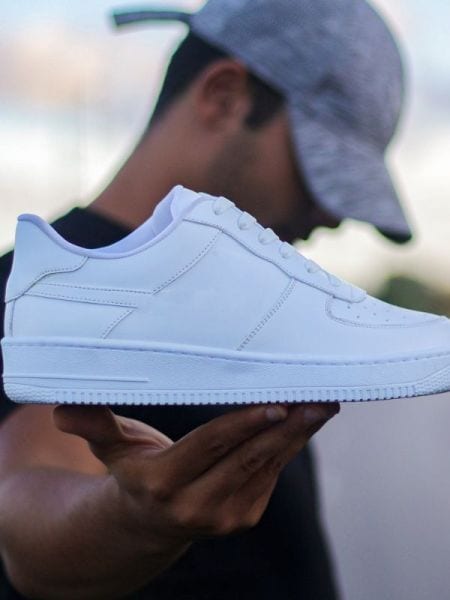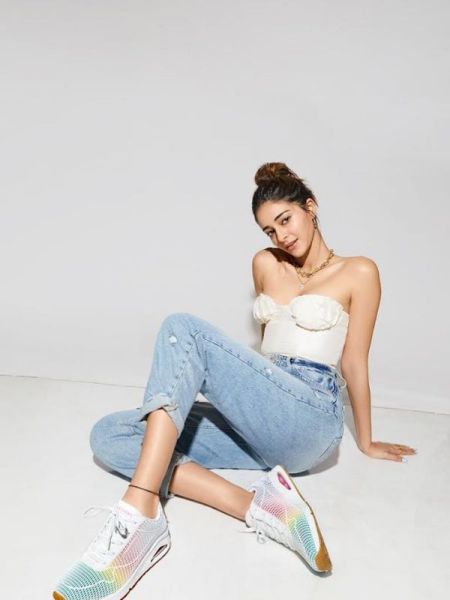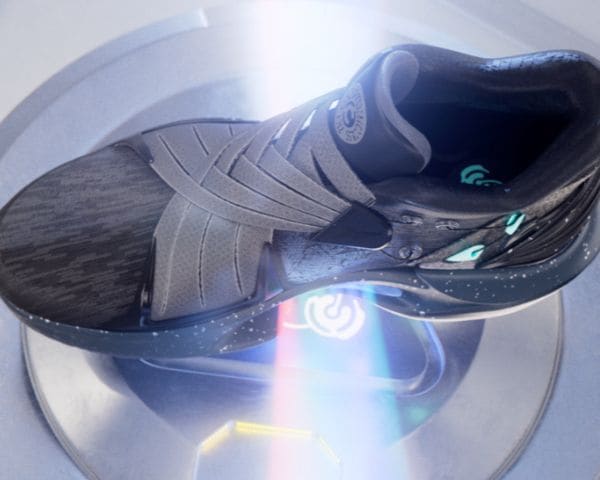Kicking It Up: Sneakers Are The New Currency Of Luxury
Once a symbol of athleticism, sneakers today are cultural commodities and a new-age asset for young Indians
Luxury is difficult to define. A simple dictionary definition throws up words like ‘an inessential, desirable item that is expensive and can be difficult to obtain.’ But there is more to it than mere price; luxury is heritage, design, craftsmanship, exclusivity and much more. For a young Indian today, there is probably one thing that is as much the definition of luxury as a Hermes Birkin handbag – sneakers.
Sneakerheads Ahead
Over the last few years, the world has witnessed a surge in sneaker culture. Once a symbol of athleticism, sneakers today are cultural commodities, with the global sneaker market predicted to reach $120 billion by 2026. These humble footwear offer bragging rights and have moved beyond the confines of sports to luxury ramp walks. Sneakers have a cultural connotation with street style, and 62% of respondents in a Hypebeast survey chose sneakers as their most bought streetwear product.
 Sneakers today are cultural commodities
Sneakers today are cultural commodities
From limited edition drops to exclusive collaborations, India too is seeing a massive surge in sneakerheads, who chase highs from a new pair of kicks. And there are many reasons for this, the key being a growing millennial and Gen Z market that values self-expression and luxury, albeit in a different form. But sneakers have been on the market for a long time. Why the sudden craze?
“As youngsters, my co-founders and I used to buy a lot of sneakers. The common issues we faced were the lack of access to authentic sneakers and the time it took to deliver them in India. Getting the pair you wanted often took as many as 4-6 months. Additionally, there was no way to verify your new pair’s legitimacy; no third-party apps could check if the shoes were authentic,” explains Danish Chawla, who started Find Your Kicks India (FYKI) with Simardeep Singh and Harshdeep Singh in 2020. An online marketplace for reselling sneakers, FYKI tackles the primary concerns of this business and connects buyers and sellers of this high-demand commodity.
 Youngsters are also inspired by celebrities who choose to don sneakers
Youngsters are also inspired by celebrities who choose to don sneakers
Platforms like FYKI, Superkicks have also, in turn, contributed to the growth of the sneaker culture in India, indulging sneaker enthusiasts with a wide range of sneakers from around the world. “We see every sneaker having a different story. Every product has a different appeal. For a retailer like us, we harp on storytelling behind every shoe closely connected to subcultures like skateboarding, hip-hop, basketball, and music. One can see an exponential rise in interest in sneakers in India, and I give a lot of credit to our connection to the western culture, which has fast-tracked in the last five years because of Instagram and combined with the fact that there is more disposable income” expresses Nisha Lulla, who co-founded Superkicks, a sneaker and streetwear store, with Sangeet Paryani.
Social media platforms, such as Instagram and Facebook, also play a significant role in community-building; sneakerheads can connect and share their collections and experiences. Devyn Kumar, a hospitality industry professional, found his passion for sneakers and their history through social media. “There is a large influence of celebrity endorsements, and many popular YouTubers can be seen sporting sneakers, inspiring a whole generation. From Ranveer Singh to Rannvijay Singha, influential celebrities inspire a certain allure for this footwear. Also, accessibility in India is a great plus; many shoes that are almost impossible to get abroad because of high demands often sit here on discounts,” he shares.
View this post on Instagram
Limited Edition Drops Rule
This charm promotes one of the most significant trends in the sneaker culture: the preference for limited edition drops and collaborations. “The idea behind collaborating with an all-time NBA champion and legend Micheal Jordan and building such differently designed sneakers known as Air Jordan was a wonderful move that Nike came up with, and being a huge fan of the NBA culture, I was just excited, and I started collecting sneakers,” shares Ayush Chawla, a sneaker enthusiast. Danish corroborates this trend towards sneakers being the new-age asset. “The younger generation uses sneakers to express themselves. It combines luxury and exclusivity with comfort. A 14-year-old would probably not understand how stocks work, but they would definitely know the value of a limited edition sneaker.”
Sneakers have cemented their place in popular culture, and the drive to get their hands on a limited edition pair is not limited to men. Online platforms and stores are seeing more women partake in the sneakerhead community. “Most sneaker enthusiasts were men, only because women have multiple footwear choices in the fashion segment like heels, flats, etc. However, over the last two years, brands have started paying attention to making sneakers for women that are fashion-forward and comfortable. In the footwear pie chart, women invest more in sneakers, be it Jordans, dunks, basic superstars or white standfords. We’re seeing a lot of women now divulging the money kept aside for a nice pair of sneakers instead of heels or stilettos,” explains Lulla.
 Nike released an NFT collection of Cryptokicks with RTFKT
Nike released an NFT collection of Cryptokicks with RTFKT
Is The Future Digital?
But where is this industry headed? Keeping in touch with the luxury industry, is there also a future for online sneakers? Nike has bought a virtual shoe company that makes NFTs and sneakers for the metaverse, and Balmain is taking its Unicorn sneaker silhouette to the metaverse. While most brands expect the craze for NFTs to seep into the sneaker business, Lulla and Chawla believe it will never compare to owning an exclusive pair of sneakers.
“Even though I see the trend for NFTs continuing in the future, I feel it won’t ever be able to replace any physical product. Especially in the sneaker industry, because if you keep the functional aspect of it – shoes are a basic need for everyone. In the sneaker business, having a tangible product is important, which can be held and experienced. Hence, I feel having physical products will always dominate this industry,” Lulla adds.







 The global sneaker market is predicted to reach $120 billion by 2026
The global sneaker market is predicted to reach $120 billion by 2026



